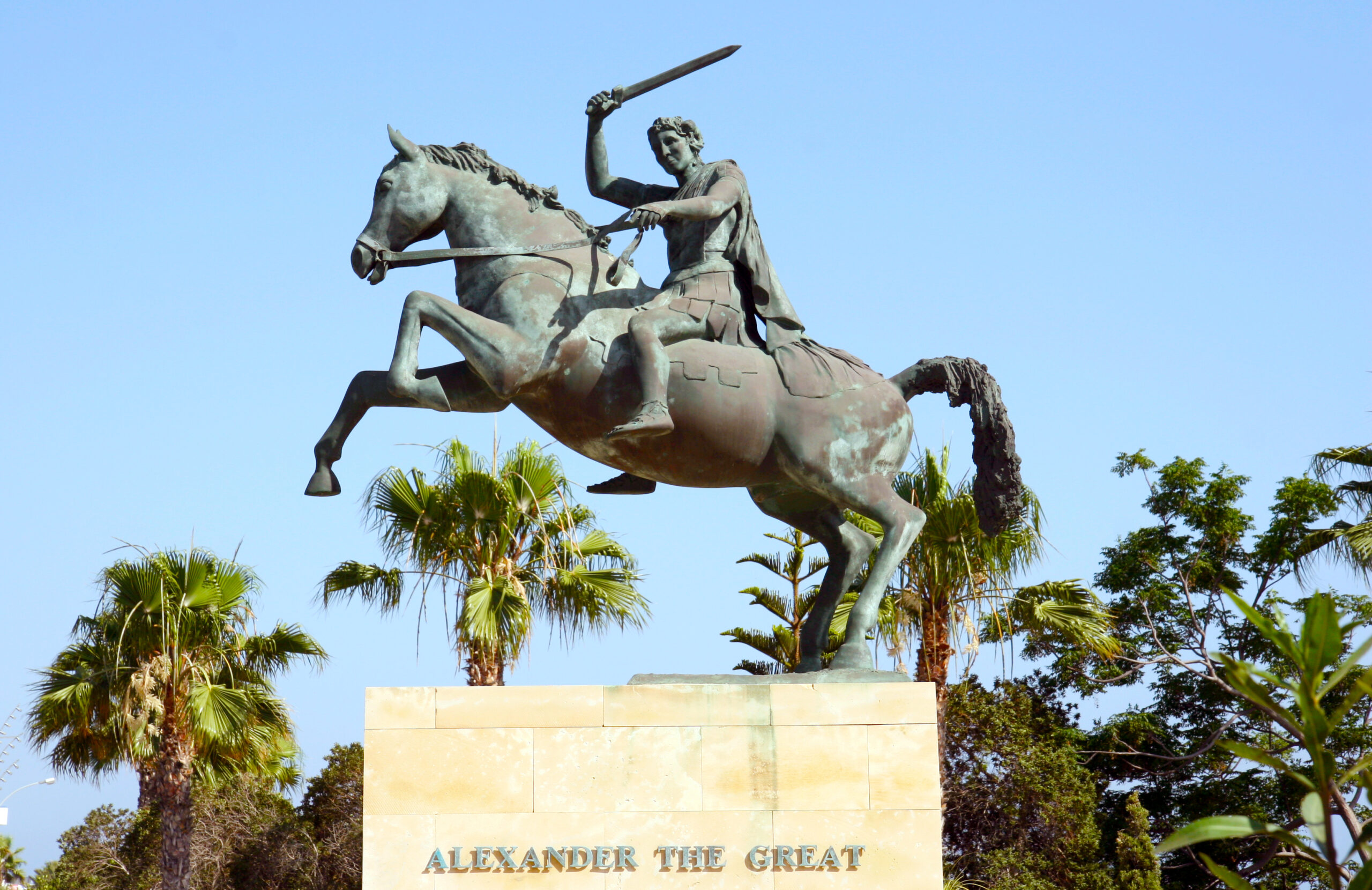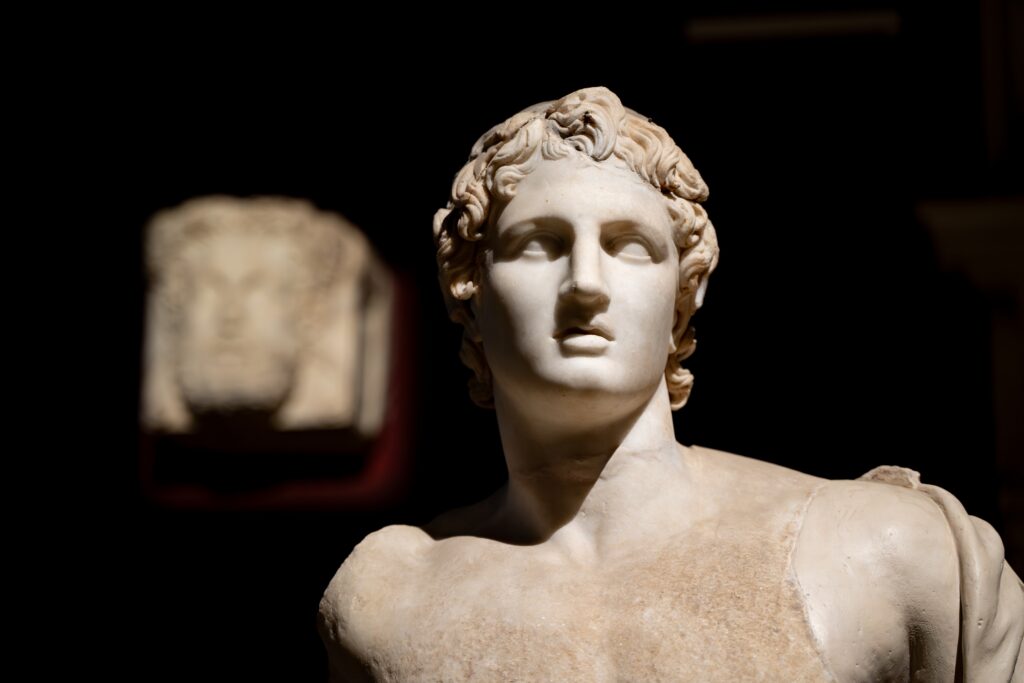
Alexander the Great: The Man Who Conquered the Known World
Few names in history command the awe and mystery of Alexander the Great. Born in Macedonia in 356 BC, Alexander created one of the largest empires the world had ever seen — all by the age of 32. A student of Aristotle, a fearless general, and a skilled strategist, he blended ambition, intellect, and charisma to transform the ancient world.
This post explores his incredible life — from princely beginnings to global conquest — and examines the legacy of a man who reshaped civilisations and earned the title of “Great.”
Outline
- Born to Rule: Alexander’s Early Life
- Tutored by Aristotle: Mind Meets Muscle
- The Rise to Power: Becoming King of Macedonia
- Defeating the Persian Empire
- Conquering Egypt and Founding Alexandria
- Into the East: Battles in India
- The Death of an Empire Builder
- Alexander’s Legacy: More Than Military Might
- Final Thoughts
Born to Rule: Alexander’s Early Life
Alexander was born in Pella, the capital of ancient Macedonia, in 356 BC. His father, King Philip II, was a powerful ruler and military innovator who united most of the Greek city-states under Macedonian rule.
From a young age, Alexander showed signs of brilliance:
- He tamed a wild horse, Bucephalus, at age 12 — earning praise across the kingdom
- He was competitive, bold, and unusually self-assured
His mother, Olympias, often told him he was descended from gods — and he seemed to believe it.
Tutored by Aristotle: Mind Meets Muscle
At age 13, Alexander was tutored by Aristotle, one of history’s greatest philosophers. This shaped his worldview profoundly.
Aristotle taught him:
- Philosophy and ethics
- Geography and science
- Greek literature and logic
Alexander carried a copy of Homer’s Iliad everywhere — and modelled himself on Achilles, the great warrior-hero.
This blend of intellectual curiosity and military ambition made him unlike any leader before or after.
The Rise to Power: Becoming King of Macedonia
In 336 BC, after the assassination of Philip II, Alexander became king at just 20 years old. Though young, he wasted no time proving himself.
He crushed internal rebellions and quickly reasserted Macedonian dominance across Greece. When the city of Thebes revolted, Alexander destroyed it — sparing only temples and the house of the poet Pindar — to send a clear message.
With the Greek states under control, Alexander set his sights on something much bigger: Persia.
Defeating the Persian Empire
The Achaemenid Empire of Persia was vast and powerful. But Alexander, with a smaller, more agile army, launched a brilliant campaign that would shock the world.
Key victories included:
- Battle of Granicus (334 BC): His first major success
- Battle of Issus (333 BC): He defeated King Darius III himself
- Battle of Gaugamela (331 BC): A decisive victory that ended Persian dominance
After Gaugamela, Babylon, Susa, and Persepolis — jewels of the Persian Empire — fell into his hands.
He didn’t just defeat an empire — he absorbed its wealth, culture, and prestige.
Conquering Egypt and Founding Alexandria
In 332 BC, Alexander marched into Egypt, where he was welcomed as a liberator. He was declared the son of the god Amun and crowned as Pharaoh.
There, he founded Alexandria, a city that would become:
- A centre of learning and culture
- Home to the legendary Library of Alexandria
- A symbol of Greek-Egyptian fusion
Alexander had a vision of uniting East and West — not just through war, but through shared culture.
Into the East: Battles in India
By 326 BC, Alexander had crossed the Hindu Kush and entered India, defeating King Porus in the Battle of the Hydaspes River.
It was one of his toughest battles — the Indian war elephants caused chaos — but Alexander prevailed.
However, his troops, exhausted and longing for home, refused to go further east. Reluctantly, Alexander turned back.
Even the most fearless leader must eventually yield to the limits of human endurance.
The Death of an Empire Builder
In 323 BC, at just 32 years old, Alexander died suddenly in Babylon — possibly from fever, poisoning, or other unknown causes.
His death left the empire without a clear successor. His generals, known as the Diadochi, carved the empire into rival kingdoms.
The man who had conquered the known world died with no heir and no plan — leaving a power vacuum that lasted for generations.

Alexander’s Legacy: More Than Military Might
Alexander’s legacy is vast and enduring:
Cultural Legacy:
- Hellenistic civilisation flourished, blending Greek, Persian, Egyptian, and Indian cultures
- He founded over 20 cities, many named Alexandria
- Greek became the lingua franca of the eastern Mediterranean for centuries
Military Legacy:
- His tactics are still studied in military academies today
- He demonstrated the power of speed, strategy, and surprise
Personal Legacy:
- Revered as a god in his lifetime
- Inspired countless leaders — from Julius Caesar to Napoleon
Few conquerors have achieved such scale, such influence, and such mythic status.
Final Thoughts
Alexander the Great wasn’t just a military genius — he was a complex figure driven by ambition, curiosity, and a desire to build something greater than any empire before him.
He redefined what it meant to lead, to conquer, and to imagine a world beyond one’s borders.
In the end, it wasn’t just his battles that made him great — it was his boldness to dream across continents.
He lived fast, died young, and changed the shape of the ancient world forever.


